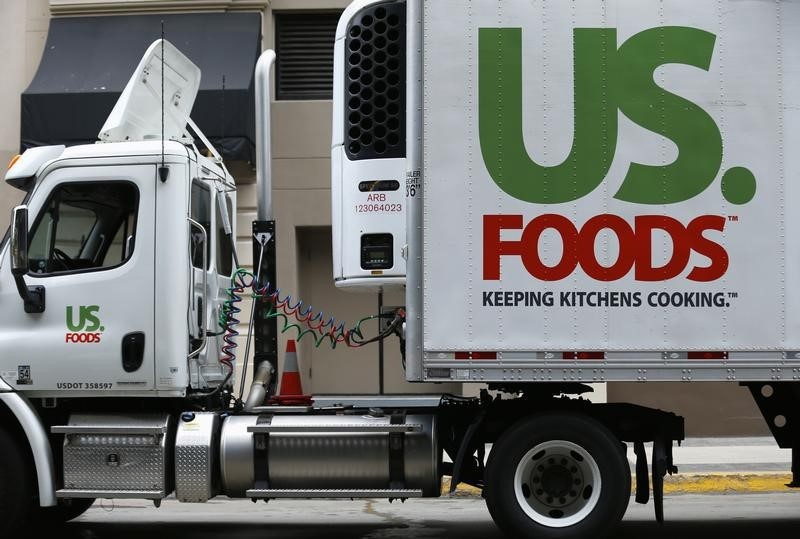Who is Kevin Hassett? Wolfe looks at the Trump ally tipped to become Fed Chair.
By Diane Bartz
WASHINGTON (Reuters) - Food distributor Sysco Corp (N:SYY) and its biggest rival, US Foods Inc
The deal, proposed in December 2013, is seen as problematic because Sysco and US Foods are the only companies with the geographic reach to offer nationwide contracts to deliver a wide range of goods to customers ranging from hotel chains to hospitals to fast food chains and fine restaurants.
To overcome Federal Trade Commission concerns, the companies have offered to sell 11 distribution centers with $5 billion in sales in hopes of building Performance Food Group into a national competitor, essentially replacing US Foods, according to the source, who spoke on condition of anonymity.
Sysco executives and FTC officials are scheduled to meet over the next two weeks to discuss whether the offer would be enough to win regulatory approval.
Performance Food Group is strong in the eastern United States, Texas and California but has few distribution centers in the rest of the West, according to its company website.
Most of the distribution centers to be sold are in the western United States and one is in California, according to two sources knowledgeable about the talks.
Sysco is the biggest U.S. food distributor with annual revenue of about $44 billion. US Foods, which is owned by private equity companies including KKR & Co (N:KKR), is No. 2.
Performance is owned by Blackstone Group (N:BX).
The FTC can approve the deal outright, approve the transaction on condition of divestitures or file a lawsuit to stop it.
Sysco said that it remained "committed to finalizing this transaction."
"Over the past year, we've met repeatedly with the FTC staff to help them understand the highly fragmented and competitive food service distribution business and the significant benefits of our proposed merger with US Foods," said spokesman Charley Wilson in an email.
The FTC declined comment.
Sysco has said the combined company would be able to maintain fewer warehouses and run fuller trucks, thus driving down costs for customers.
A group of about 25 state attorneys general, including those in Florida and Indiana, are also reviewing the deal. Minnesota's attorney general wrote a letter to the FTC in December saying it was questionable whether any divestiture could restore competition lost in the transaction.
